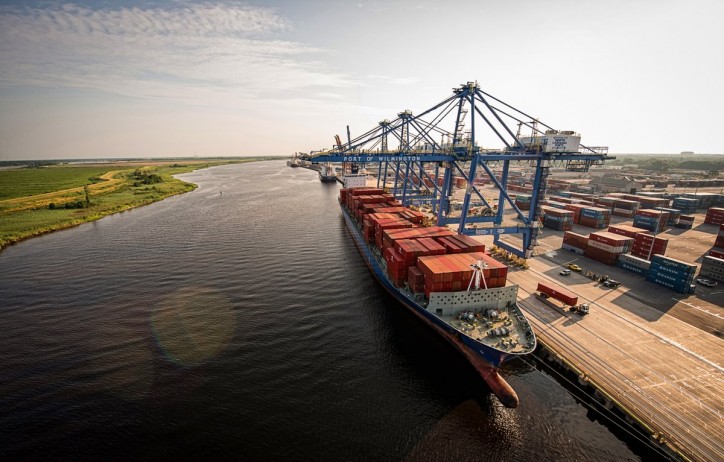North Carolina Ports has announced the Port of Wilmington’s addition of both Phase One and Two to the U.S. Department of Agriculture’s Southeast In-Transit Cold Treatment Pilot program. This will allow more direct imports of produce from across the Americas – and other countries in the Cold Treatment Program – than ever before, including fruits like blueberries, grapes, apples, pears and citrus.
“We have been working hard to get this program approved since the demand from our customer base is very strong and they wanted to see this capability for Wilmington move forward,” said N.C. Ports Executive Director Paul J. Cozza.

Cold treatment is a process whereby perishable fruits have their pulp brought to a certain temperature in order to fulfill USDA quarantine requirements for fruits entering the U.S. What separates the Port of Wilmington from other members in the pilot program is the Port’s ability to participate in Phase Two, which allows refrigerated cargo to finish its treatment schedule on terminal before being discharged.
“Phase Two opens up a totally new dimension for our Port and an option for importers to complete treatment after discharge, which is unique in the south/mid-Atlantic and only available at the Port of Wilmington at this time,” said Hans Bean, VP, Trade and Development, N.C. Ports.
During Phase One of the pilot program fruits will be chilled between 15 and 17 days at a specified temperature to protect against pests. The process begins in fruit exporting countries in Central and South America. The refrigerated cargo can then only be discharged from a South Atlantic terminal upon completion of its treatment schedule.
“The addition of N.C. Ports to the program allows the Authority to serve the North Carolina grocery sector with fresh produce with our partner ocean carriers with multiple logistical and economic advantages,” said Bean.
The Port of Wilmington has ample refrigerated container capacity with almost 300 plugs on terminal and the capability to add more. In addition to Wilmington’s reefer capacity, the Port is also home to a 101,000-square-foot on terminal refrigerated warehouse – one of only a few in-port cold storage facilities in the country.
“N.C. Ports is truly a global gateway, constantly expanding our international reach with the addition of Wilmington’s inclusion in the Cold Treatment program and our existing refrigerated capacity,” said N.C. Ports Chief Commercial Officer Greg Fennell.
North Carolina’s ports in Wilmington and Morehead City, plus inland terminals in Charlotte and in Greensboro, link the state’s consumers, businesses and industry to world markets, and serve as magnets to attract new business and industry to the State of North Carolina. Port activities contribute statewide to 76,000 jobs and $700 million each year in state and local tax revenues.
Source: NC Ports